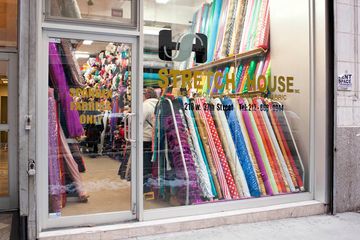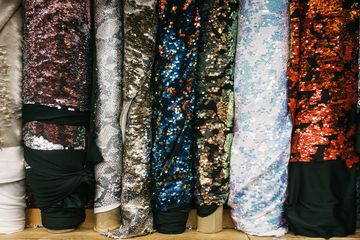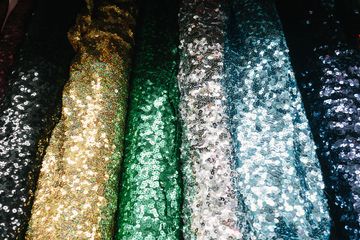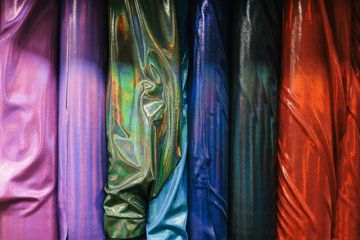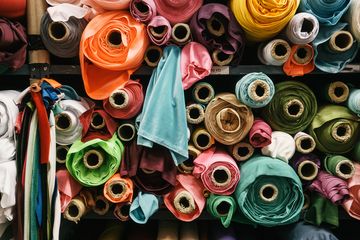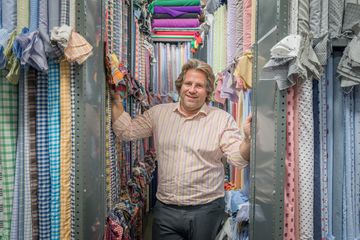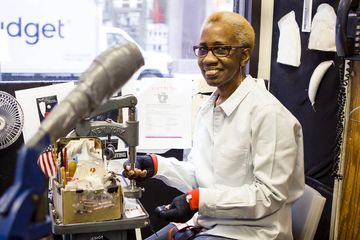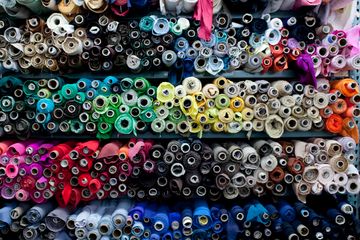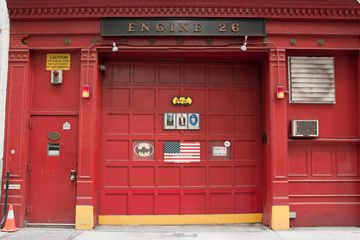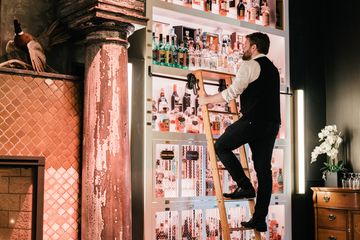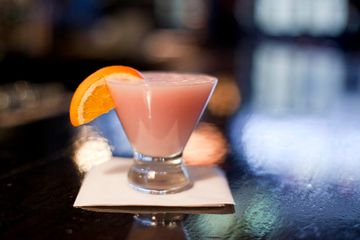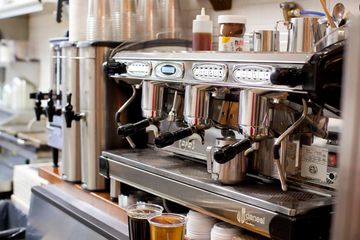The location was renamed in 2023 as The Flatiron Room Murray Hill. This feature was first published in September 2017. Fine & Rare, shorthand for “fine food and rare spirits” is the latest creation of Tommy Tardie, restaurateur and owner of the Flatiron Room on West 26th Street. In contrast to the more common restaurant theme of the 1920s and 30s, which Tommy considers to have “played out, ” Fine & Rare aims to be an aristocratic parlor straight out of the 1950s, modeled after classic Manhattan hideaways such as The Explorers Club. “The challenge was getting it to look like the Flatiron Room - old world, almost like we discovered it, ” Tommy told the Manhattan Sideways team. The space has had other lives as a Japanese restaurant and a photocopy center - Tommy said that when he first saw the space, it was raw, with concrete floors that had holes them and wires hanging from the ceiling. In 2016, it became a little slice of vintage Manhattan, complete with a repurposed teller booth from Grand Central Station serving as the hosts’ stand. The wallpaper is finely textured with glass and sand, and the stainless steel ceilings are reclaimed parts from a former distillery. Descending into the restaurant, we walked on 125-year-old floorboards from Connecticut that have the names of the restaurant’s investors carved into it. Two of these investors are Tommy’s young sons, River and Sawyer, who each made a $1 investment in the establishment in order to garner a place on the floor. Hanging above the booths are pieces of taxidermy that Tommy believes “bring in some more old world charm. ”The room is large, but because the tables are isolated from one another, each setting is intimate and unique. “Wherever you are in the restaurant, you feel like you’re in your own area. ” Each side of the dining room features a fireplace: one has hand carved marble from Italy, and the other is repurposed from the door of a country schoolhouse. The jazz stage provides a theatrical ambience to the space without overpowering it. “We want the performance to enhance, but not be, the experience. There’s always a show going on even if nothing is onstage. ” The walls are decked out with the restaurant’s inventory of over 1000 bottles, which Tommy noted are, “part of the architecture. ” Some sit atop high shelves and can only be reached by ladders, which members of the staff will climb throughout the night. Others sit in the caged bottle keep, with personalized labels that can be bought. “New York is all about showmanship - people love to put their name on something. ” The back elevated room holds up to thirty-five people and is used for tastings and private events. It has a few hidden elements of its own, including a chandelier and leather and steel door from a masonic hall. While speaking with Tommy, the Manhattan Sideways team sampled a few of the restaurant's scrumptious items, including the burrata served with arugula and an assortment of fruits, the short rib burger, the seafood Cobb salad, and the Greek grain bowl with quinoa, mint, and beet humus. While the Flatrion Room focuses largely on whiskey, Fine & Rare features cocktails with tequila, rum, and brandy. This does not mean that they do not still have some amazing whiskey options, such as the breathtaking smoked Old Fashioned that was presented to us to photograph and then sip. Tommy began his professional career as a creative director in advertising on Madison Avenue, but realized after a dozen years that he was craving something more exciting. “The higher I got on the corporate ladder, the less creative it got. It lost that cool factor. ” He resolved to go the route of the entrepreneur, initially with a few clubs, and later with the Flatiron Room and eventually Fine & Rare in 2017. “With this one, I decided to make the demographic and design a place I’d like to go, as opposed to previous projects that centered on reaching a specific consumer base. " Tommy also remarked on how Fine & Rare is the result of the trial and error from past ventures: “This is as if I got to do it again and I could do it better. I think entrepreneurs are genetically coded to forget how difficult it can be starting out, but a new project is fun. It makes your heart pump and your adrenaline go. ”
